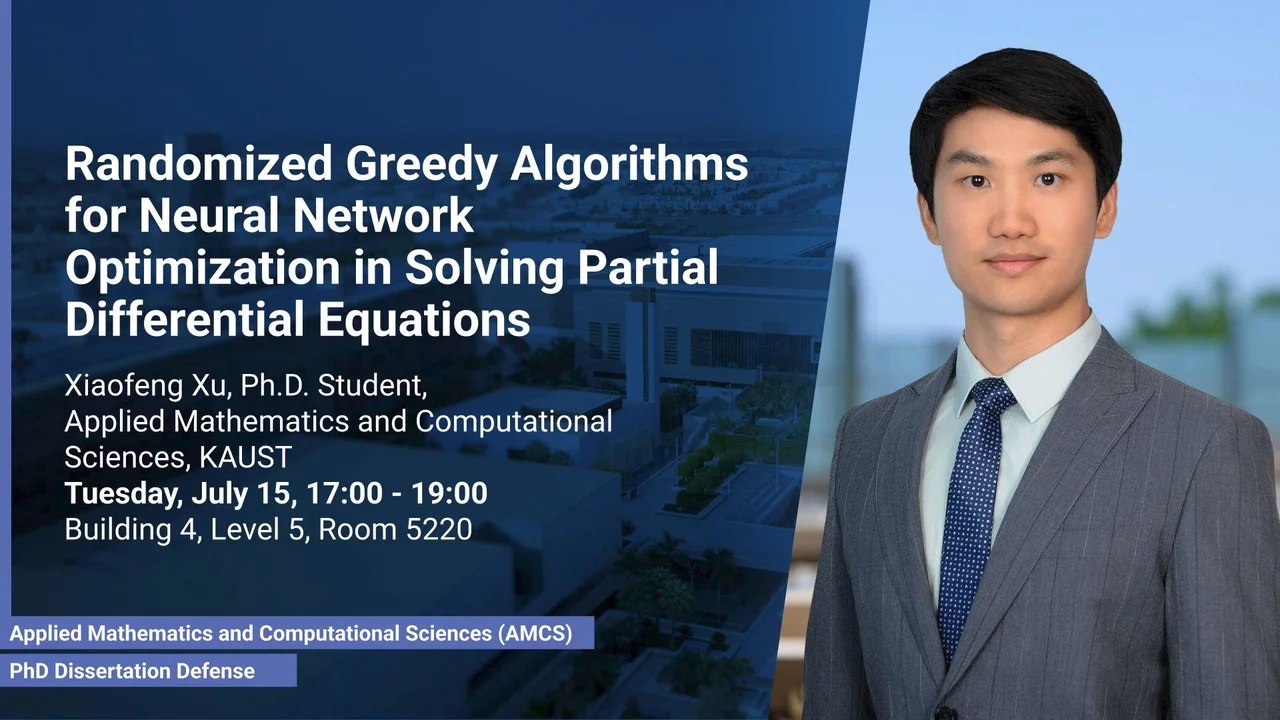
Randomized Greedy Algorithms for Neural Network Optimization in Solving Partial Differential Equations
This thesis introduces the randomized orthogonal greedy algorithm (ROGA) to bridge the gap between theoretical and practical performance of shallow neural networks for solving partial differential equations by overcoming key optimization challenges to achieve provably optimal convergence rates.
Overview
Neural networks have demonstrated remarkable approximation capabilities for solving partial differential equations (PDEs). However, their practical effectiveness remains limited by optimization challenges, even in the case of shallow neural networks. This leads to a significant gap between theoretical approximation rates and practical convergence orders. In this talk, we address the key optimization challenges in using ReLUᵏ shallow neural networks for numerical PDEs by developing the randomized orthogonal greedy algorithm (ROGA). We prove that the orthogonal greedy algorithm achieves the optimal convergence rate of ReLUᵏ shallow neural networks for solving PDEs that admit strongly convex and smooth energy functionals, thereby extending the applicability of OGA to a wide range of variational problems. We further tackle practical challenges in implementing OGA by proposing a randomized variant - the randomized orthogonal greedy algorithm. Comprehensive numerical experiments on a range of linear and nonlinear PDEs confirm its practical effectiveness and optimal convergence behavior. These results demonstrate that our proposed algorithm substantially narrows the gap between theory and practice, validating ROGA as a promising new tool for numerical PDEs.
Presenters
Brief Biography
Xiaofeng Xu is a Ph.D. candidate in the AMCS program at KAUST, under the supervision of Professor Jinchao Xu. His research lies at the intersection of traditional numerical methods for partial differential equations (PDEs) and modern machine learning approaches. He is particularly interested in developing efficient and provably convergent training algorithms for neural networks in numerical PDEs.
Xiaofeng received his Bachelor's degree in Mathematics and Computer Science with First Class Honors from the Hong Kong University of Science and Technology (HKUST), and his Master’s degree from the Pennsylvania State University.

